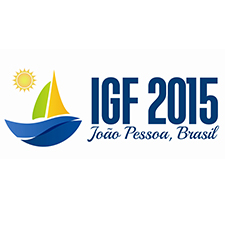Transnational due process: A case study in MS cooperation
13 Nov 2015 11:00h - 12:30h
Event report
The workshop, organised by the Internet and Jurisdiction Project, sought to explore emerging issues in addressing transnational due process. Project Director Bertrand de la Chapelle set the scene by introducing the problem of jurisdiction brought about by having separate national legal frameworks on the Internet. Panellists were then asked to address the question: ‘What is the challenge of competing jurisdiction in the digital environment?’
Eileen Donahoe from Human Rights Watch noted that the digitisation of everything had created more vulnerability and hence there is a need for increased security. Additionally, domestic laws are increasingly having a trans-border effect.
A technical perspective was given by the Canadian ccTLD. In Canada, President and CEO of CIRA Byron Holland noted, the government had attempted Domain Name Service (DNS) blocking to control gambling sites, even though the DNS is a global resource. It was felt that, we should not employ technical solutions to behavioural problems unless in exceptional circumstances.
Google’s Will Hudsen and Facebook’s Matt Perault related the principles under which their companies responded to government requests for information and take-downs and the tension between local laws and human rights standards.
Sunil Abraham, Director of CIS India, intimated the problems faced by the Mutual Legal Assistance Treaty (MLAT) due to an asymmetry where, for instance, India had more requests for mutual assistance from the USA and the USA had very few. In his view, this had led to governments demanding data localisation and also that Internet Protocol (IP) blocks be allocated according to jurisdiction.
Christopher Painter, US Department of State Coordinator for Cyber Issues, conceded that as many Internet companies were based in the USA, there were numerous MLAT requests. The US was therefore streamlining the MLAT process to provide a better service.
Liana Kanelli from the Council of Europe noted that whereas states could restrict certain content within their borders, crossborder procedures needed harmonisation. She invited participants to study emerging jurisprudence from the courts that was shaping the principles for transnational jurisdiction.
The discussion noted that more countries were adopting national measures. This was not a problem as far as the national measures conformed to international human rights principles. Also, in recognising people’s (community, cultural) rights and sovereignty, states could develop separate national frameworks. The important thing was to have a harmonised process for crossborder requests.
Governments were therefore called upon to tackle the problem of jurisdiction urgently to avoid fragmentation of the Internet.
By Grace L.N. Mutung’u
Related event

